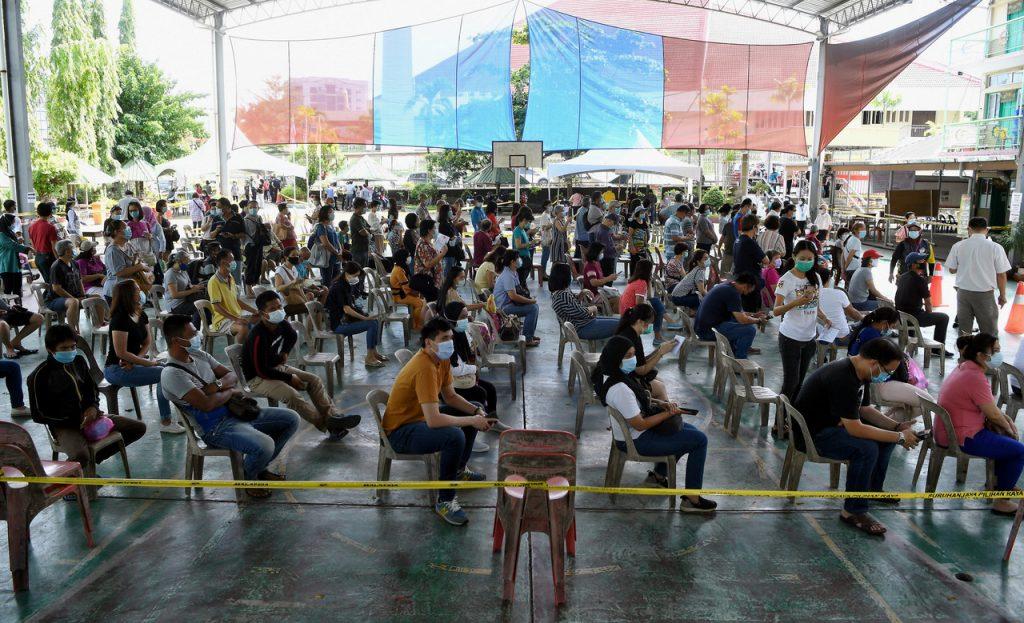Covid-19 vaccine not a green light for GE15, says health expert
Dr Zainal Ariffin Omar says it will take a while for vaccines to kick in, and that most people will remain vulnerable to infection for some time yet.
Just In
While the first deliveries of Covid-19 vaccines are expected to hit Malaysian shores next month, this is no guarantee that the 15th general election (GE15) can be held this year as demanded by Umno, a health expert warns as daily case numbers continue to rise, topping 3,000 in a new high on Thursday.
Dr Zainal Ariffin Omar, president of the Malaysian Public Health Physicians’ Association, also cautioned that vaccinating the people would take a long time, perhaps up to a year to reach the government’s target of 80%.
“In the early stages, the vaccine will only be given to frontline workers, not the general public.
“Most people will still be vulnerable to infection,” he told MalaysiaNow, adding that it would take some time for the vaccines to result in a decline in case numbers.
On Wednesday, the Umno Supreme Council urged the Perikatan Nasional (PN) government to dissolve Parliament to pave the way for a general election to be held within the first quarter of the year.
Its call sparked a strong reaction from the public which has been grappling with daily new cases in the four-figure range.
“The Sabah polls are the best example of the consequences for the people as well as the country.”
More than a dozen MPs from seven opposition parties also condemned the plan, accusing Umno of wanting to use fresh elections “as a trump card to grab more power at the expense of Malaysians’ well-being and health safety”.
If an election is held now, Zainal said, the country would need to prepare for a spike in infections, as had occurred after the Sabah state election last year.
“It would be best to avoid holding GE15 for now,” he said. “The Sabah polls are the best example of the consequences for the people as well as the country.”
Even vaccines would not be able to halt the spread of Covid-19 within communities in such a short period of time, he added.
“So whatever the case, the best way to prevent the spread of infection is to follow SOPs such as observing physical distancing, wearing face masks and avoiding crowded places – all of which will be jeopardised if a general election is held in the near future.”
“Political stability will not be achieved even if GE15 is held some time soon.”
He said it made no sense for politicians to cite the example of other countries that had held elections in the midst of the pandemic in order to justify their pressure on the government to dissolve Parliament.
“The US with its high case load and death toll is the best example,” he said. “We don’t need to risk the country and the people.
“Politicians should think rationally. Political stability will not be achieved even if GE15 is held some time soon.”
Last week, Umno president Ahmad Zahid Hamidi accused the Perikatan Nasional government led by Muhyiddin Yassin of being afraid to hold a general election.
Addressing Umno members at his Bagan Datuk division, he questioned the view that a general election should not be held during the pandemic.
“More than 30 countries have already done so. Why is Malaysia afraid? I think that we’re not worried about Covid-19, but about other things,” he said.
But Zainal urged MPs to think rationally about what to prioritise in life.
“Think well,” he said. “Where are our priorities? They should go ask their voters, what do the people want?
“Strive for political stability with unity and tolerance. Don’t gamble with the lives and health of the people.”
Subscribe to our newsletter
To be updated with all the latest news and analyses daily.
